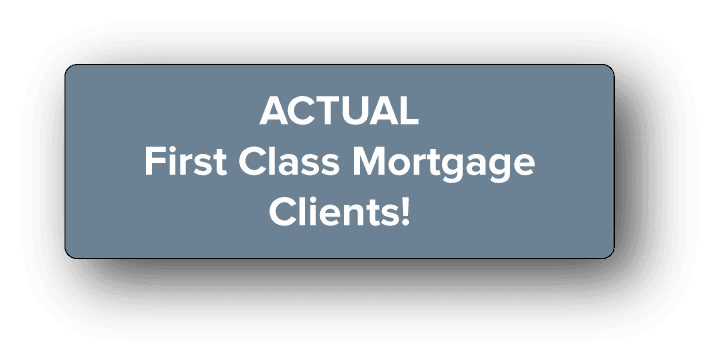Key Takeaways
- Minnesota property taxes are based on market value, tax classification, and local levy rates.
- The average effective tax rate in Minnesota is about 1.05%.
- Counties like Hennepin and Ramsey tend to have higher taxes than rural areas.
- Homestead status and refund programs can lower your tax burden.
- Property taxes can significantly affect housing affordability and monthly payments.
Minnesota Property Taxes Explained
Understanding property taxes in Minnesota is a crucial step for homeowners, homebuyers, and investors. These taxes affect your monthly housing costs, long-term affordability, and even your decision on where to live. In this guide, we’ll break down how Minnesota property taxes work, how rates differ by county, what affects your tax bill, and how you can plan smarter for your real estate goals.
How Property Taxes Work in Minnesota
Minnesota property taxes are calculated based on the market value of your property and the tax rates set by local governments. These include counties, cities, school districts, and other special taxing authorities.
The Minnesota Department of Revenue determines your property’s estimated market value each year. Local governments then use this value to calculate your property tax bill.
What Determines Your Property Tax Bill
Several factors impact how much you’ll pay in property taxes:
- Estimated Market Value of your home
- Tax Classification (residential, agricultural, commercial, etc.)
- Local Levy Rates set by counties and cities
- Homestead Status (a homestead exemption can reduce your taxes)
Special Assessments for local improvements like sidewalks or sewers
Average Property Tax Rates in Minnesota
Minnesota has a statewide average effective property tax rate of about 1.05%, which is just slightly above the national average. However, property tax rates vary widely across counties. For example:
- Hennepin County (Minneapolis) and Ramsey County (St. Paul) tend to have higher rates.
- Greater Minnesota counties like Martin or Beltrami may offer lower average tax bills due to lower home values.
How Your County Affects Your Taxes
Where you live can significantly affect your property tax bill. That’s why many people look at cost of living comparison in Minnesota cities before choosing where to buy. For example, moving from Minneapolis to a smaller town like Hibbing could reduce your overall living costs—including property taxes.
Want to explore those cities further? Check out our guides to the Cheapest Place to Live in Minnesota and Minnesota Living Cost breakdowns.


Property Tax Refund Programs
Minnesota offers tax relief programs for eligible homeowners and renters:
- Homestead Credit Refund helps homeowners whose taxes are high relative to their income.
- Special Refund applies when your property tax goes up by more than 12% from the previous year.
- Senior Citizen Property Tax Deferral Program allows qualified seniors to defer a portion of their taxes.
These programs can be a big help for those living on fixed incomes or adjusting to rising housing costs.
How Property Taxes Impact Housing Affordability
When you’re calculating your mortgage payment, don’t forget that Minnesota property taxes are a major piece of the puzzle. They’re often included in your monthly escrow payment. High property taxes can affect your loan approval amount, debt-to-income ratio, and long-term affordability.
If you’re still exploring, see our guide on the Average House Price in Minnesota to compare housing and tax costs across regions.


Minnesota Property Taxes vs Other States
While Minnesota’s property tax rate is average, its property tax system is more transparent and consistent than in many states. You’ll find regular assessments, detailed notices, and refund options—making it easier to plan your budget.
Tips for Managing Your Property Tax Bill
- Apply for homestead status if you live in the home year-round.
- Review your market value notice each year and appeal it if necessary.
- Ask about local levies and pending assessments before buying a home.
- Use a property tax estimator from your county website to plan ahead.
Why Property Taxes Matter for Homebuyers
If you’re planning to buy in Minnesota, understanding property taxes is just as important as your loan rate. Property taxes can vary by thousands of dollars per year, especially between urban and rural areas.
If you’re using an online mortgage premium insurance calculator or trying to understand what is mortgage insurance, keep in mind that property taxes also affect your total monthly payment.
Are Property Taxes Higher in Minneapolis?
Property taxes in Minneapolis are typically higher than in most smaller towns due to local levies, higher home values, and urban infrastructure needs. If you’re considering living in Minneapolis, weigh the perks of city living against the added tax burden.
Still unsure where to settle down? Compare the cost of living in Minnesota or read our full guide on Minnesota Quality of Life to see how taxes, housing, and amenities stack up.
Thinking About Buying in Minnesota?
If you’re navigating home buying and budgeting in the North Star State, First Class Mortgage is here to help. Our team can walk you through mortgage options, property tax estimates, and neighborhood comparisons.
Contact First Class Mortgage today for expert guidance and a personalized plan that fits your financial goals.
First Class Mortgage
First-class service. First-class knowledge. A first-class experience. We are staffed and operated by people who understand that each customer is special and individual attention is necessary to satisfy each unique financial situation. That’s why at First Class Mortgage, we have simplified the mortgage process.
Locally owned. Connected nationwide.


